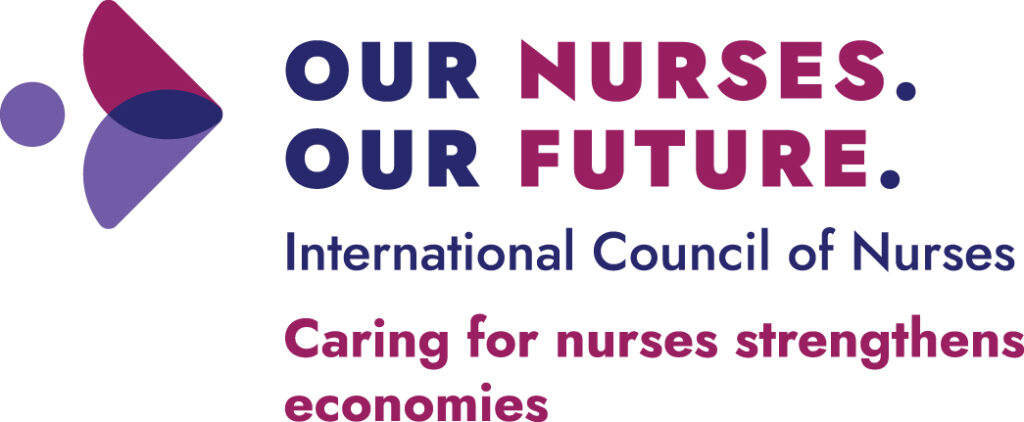Across the UK, many registered nurses are considering a career change, leaving behind bedside roles in search of better balance, fulfilment, and progression. According to recent data from the Royal College of Nursing, early departure from the profession is on the rise, with a 43% increase in nurses leaving within 10 years of registration and a 67% rise in those leaving within 5 years.
These trends pose risks to patient care, but they also reveal a deeper shift. Nurses are discovering that their clinical experience, nursing skills, and desire to help others can thrive in new environments. This blog offers valuable career advice, highlighting some of the most promising career change options for nurses who are ready to explore meaningful roles beyond the ward.
The term “outside the ward” refers to non-bedside nursing job roles that do not involve direct inpatient care, yet still rely on core nursing expertise. These include both clinical jobs in community or remote settings and non-clinical positions across industries such as tech, education, law, and corporate health.
Nurses in the UK may choose these paths to avoid long shifts, reduce burnout, or seek roles where they can specialise and grow. For nurses who want to change but stay within healthcare, this shift presents exciting opportunities to advance your career while preserving your purpose.
Below is a curated list of high-demand career pathways that make use of your nursing or healthcare background. These are grouped into clinical roles outside the ward and non-clinical jobs for nurses.
School Nurse
School nurses work in educational settings, managing immunisations, health education, and care plans for students. A degree in nursing and school-nurse training are required. It’s a common career change for nurses seeking family-friendly hours. With experience, they can advance to regional school health coordinator or public health leadership roles.
Occupational Health Nurse
These nurses support employee well-being in workplaces, conducting risk assessments, health surveillance, and return-to-work planning. An NMC registration and additional training in occupational health are typically required. Senior roles include occupational health advisor, team leader, or consultant in corporate health strategy.
Public Health Nurse/Community Nurse
Focused on prevention and health promotion, these nurses work in community settings to support vulnerable populations. They often partner with councils or NGOs. With career progression, nurses can move into programme development, policy-making, or senior public health commissioning roles.
Clinical Research Nurse
These nurses coordinate clinical trials, recruit participants, and ensure regulatory compliance. Employers include NHS trusts, research institutions, and pharmaceutical firms. Career pathways lead to senior research coordinator, clinical operations manager, or principal investigator support roles.
Telehealth/Virtual Nurse Advisor
Telehealth nurses deliver remote care via phone or video, supporting triage, chronic condition monitoring, and virtual consultations. A background in general practice nursing and good tech skills are essential. Growth can lead to team lead, service development nurse, or digital health consultant roles.

Nurse Lecturer/Nurse Educator
These roles involve teaching student nurses, developing curricula, or running simulation labs at universities or training centres. A master’s degree or PGCert in education is usually required. Progression can lead to senior lecturer, academic programme director, or curriculum developer positions.
Nurse Case Manager/Disability Assessor
Case managers coordinate patient care plans; disability assessors evaluate applicants for government benefits. Both roles use strong assessment and administrative skills. With experience, nurses can step into clinical governance, quality assurance, or health service management roles.
Health Informatics Specialist
These professionals oversee electronic medical records, data reporting, and digital system implementation. A nursing background combined with IT or analytics training is key. Career progression includes digital health lead, NHS informatics manager, or Chief Nursing Information Officer (CNIO).
Legal Nurse Consultant/Compliance Nurse
These roles involve reviewing clinical documentation, supporting legal reviews, or ensuring policy adherence in healthcare organisations. Nurses with legal or auditing interests are well-suited. Growth can lead to senior consultant, risk manager, or regulatory compliance lead roles.
Pharmaceutical/Medical Device Trainer or Representative
These nurses educate clinicians on medications or devices, often in partnership with pharmaceutical companies. A strong clinical background and presentation skills are essential. Career advancement may include regional trainer, product manager, or medical liaison roles.
Many nurses are choosing alternative careers for nurses because healthcare settings have changed, and their skills are needed beyond the ward. Remember that nursing skills like clinical judgement, empathy, and organisation are highly transferable. Whether you become a nurse consultant, nurse educator, or work in clinical research, your competence will shine in your next role.
Choosing a new career is valid, strategic, and supported by current trends. You don’t have to leave the nursing profession to benefit from better conditions, flexibility, and growth.
If you’re a nurse considering a career change, Verovian Healthcare Recruitment Agency is here to help. We specialise in placing nurses in the UK into flexible, rewarding roles across telehealth, case management, education, health informatics, and more.
Register now and discover how we can help you transition confidently into your next career outside the ward.
If you're looking to progress your nursing career, becoming a Nurse Practitioner (NP) could be the ideal next step. NPs play a vital role in the UK healthcare system, offering expert clinical care, managing complex cases, and often working autonomously across various settings. In this guide, we outline the steps to becoming an NP, the qualifications required, and what to expect from this high-impact role.
A Nurse Practitioner, commonly referred to as an Advanced Nurse Practitioner (ANP) or Advanced Practice Nurse (APN), is a highly skilled and experienced Registered Nurse (RN) with advanced clinical training. NPs can assess, diagnose, manage treatment plans, and prescribe medications, often working independently or as part of multidisciplinary teams. The role is common in primary care, urgent care, and specialist services.
NPs require a unique combination of technical knowledge and personal attributes:
Start by completing an NMC-approved nursing degree (BSc or Nursing Degree Apprenticeship), which provides the essential skills and clinical experience needed to become a Registered Nurse (RN).
After obtaining your nursing degree, register with the NMC to practice as an RN. This ensures that you meet the standards required to deliver safe and ethical care.
Work for 2-3 years in clinical settings such as hospitals or primary care as an RN. This hands-on experience is essential for developing the clinical judgement needed to progress as a nurse practitioner.
Joining bodies like the Royal College of Nursing (RCN) and the Nursing and Midwifery Council (NMC) provides support, networking, and continuing education, essential for career growth, staying updated, and advancing as a Nurse Practitioner.
To become an NP, you’ll need to complete a Master’s degree in Advanced Clinical Practice. This qualification will equip you with advanced clinical knowledge, including diagnostics, prescribing, and leadership skills. Many nurses choose to study part-time to balance their clinical roles.
The V300 course enables NPs to prescribe independently, including controlled drugs, within their scope of practice. This qualification is usually integrated into the ACP Master’s or can be taken separately.
Document your skills, procedures, leadership activities, and ongoing professional development. Employers use this portfolio to assess your readiness for advanced practice roles.
Once qualified, you can apply for NP roles in NHS Trusts, GP practices, urgent care centres, or private healthcare settings. Working with a specialist recruitment agency such as Verovian Healthcare Recruitment Agency can help you identify roles that align with your experience, location preferences, and clinical interests.
Nurse Practitioners must complete NMC revalidation every 3 years to maintain their certification as nurse practitioners. This involves ongoing professional development (CPD), reflective practice, and peer discussions to ensure your skills remain up to date.

In the UK, Nurse Practitioners (NPs) can specialise in:
In 2025, NPs are in high demand due to NHS workforce pressures, an ageing population, and increasing healthcare complexity. This demand spans primary care, community health, and hospital-based services.
Salary Expectations:
Nurse practitioners are expected to play an increasingly central role in reshaping NHS services. As pressures on GPs and hospital doctors rise, NPs are stepping in to manage complex cases, lead clinics, and enhance care continuity. With expanded prescribing rights and diagnostic authority, NPs offer a flexible, efficient solution to staffing challenges, delivering safe, patient-focused care across sectors.
Becoming a nurse practitioner is a rewarding career move that combines clinical excellence with greater autonomy and leadership. By gaining the right qualifications, clinical experience, and ongoing education, you can join the growing workforce of NPs helping to shape the future of UK healthcare.
Verovian Healthcare Recruitment Agency connects skilled nurse practitioners with top healthcare employers across the UK. Contact us today to explore exciting opportunities and take the next step towards a rewarding and impactful career in healthcare. Your future starts here!
As May 12th approaches, the world gets ready to celebrate International Nurses Day—a heartfelt tribute to the nurses who form the backbone of healthcare systems everywhere. More than just a date on the calendar, this annual event is a powerful reminder of the compassion, resilience, and expertise that nurses bring to their roles every single day.
Each year, International Nurses Day not only acknowledges individual contributions but also inspires broader conversations about the support and recognition nurses need to thrive. It’s a moment when healthcare professionals, communities, and leaders come together to reflect on the past, look to the future, and show appreciation for the people who care for us all.
In this blog, we’ll reveal the official theme for International Nurses Day 2025, as set by the International Council of Nurses (ICN), and share practical wellbeing tips to help you, as a nurse, take care of your own health and well-being.
The International Council of Nurses (ICN) has announced that the theme for International Nurses Day 2025 will be “Caring for nurses strengthens economies.” This powerful message continues the momentum of the multi-year campaign “Our Nurses. Our Future.”, which aims to elevate the profile of nursing and reaffirm the profession’s central role in building resilient health systems.
This year’s theme underscores a vital truth: when nurses are cared for—physically, mentally, and professionally—entire healthcare systems and national economies benefit. Dr Pamela Cipriano, president of the ICN, emphasised that the campaign is not only about raising awareness of the challenges nurses face but also about promoting tangible, evidence-based solutions to improve their well-being. These solutions include better working conditions, mental health support, and policies that prioritise retention and career development.
By focusing on the well-being of nurses, the 2025 theme invites stakeholders to take real action. It calls on governments, healthcare organisations, and communities to recognise that a strong nursing workforce is a cornerstone of public health and economic stability. Investing in nurses today is an investment in a healthier, more secure future for all.
Read Also: The International Nurses Day 2024
As we celebrate International Nurses Day 2025, it's the perfect time for nurses to pause and prioritise their own health—physical, mental, and emotional. Here are a few wellbeing tips to help you thrive in your profession and beyond:
As a nurse, you give so much of yourself to care for others—this International Nurses Day, let it be a reminder that your well-being matters too. The 2025 theme is a call for change: a future where you're supported, valued, and empowered in every part of your career. Whether you’re at the bedside, in the community, or leading change, know that your role is vital—and so is your health and happiness. Let’s keep pushing for workplaces where you can thrive, not just survive. You deserve it.

Nursing is built on a foundation of compassion, integrity, and unwavering dedication to patient care. At the core of this profession lies the Nursing and Midwifery Council (NMC) Code—a comprehensive guide that sets the standards for professional practice, ensuring nurses deliver safe, effective, and ethical care.
This blog post explores the key principles of the NMC Code, revealing how it shapes clinical decision-making, strengthens patient safety, and fosters accountability across the healthcare sector. Whether you're a seasoned nurse seeking to refine your practice or an aspiring professional preparing to enter the field, discover how the NMC Code serves as your compass, guiding every step of your nursing journey.
The NMC Code sets the essential standards that all nurses, midwives, and nursing associates in the UK must uphold. Think of it as your professional compass—a framework that guides your conduct and practice while empowering you to navigate the complexities of patient care with confidence and integrity.
Its principles are designed to protect patients, support ethical decision-making, and ensure accountability in every aspect of your work. The Code is built around four key themes:
Prioritising people involves treating individuals with dignity, respecting their preferences, and responding to their physical, social, and psychological needs. Nurses must act in the best interests of those in their care, ensuring privacy and confidentiality. For example, when supporting a patient with dementia, using a calm and respectful approach maintains their dignity and reduces anxiety. Upholding these principles builds trust, enhances patient well-being, and reflects the core values of compassionate care.
Practising effectively means delivering evidence-based care, clear communication, and teamwork. Nurses should follow the latest guidelines—for example, using updated protocols for diabetes management to reduce complications. Clear communication with patients and colleagues enhances care, while sharing skills and knowledge supports better outcomes. Accurate records ensure continuity of care and accountability. When delegating tasks, nurses must ensure the individual is competent, and maintaining appropriate indemnity cover provides legal protection. Effective practice ultimately benefits both patients and the profession.
Preserving safety requires vigilance, competence, and swift action. Nurses must practise within their scope, addressing mistakes openly and acting promptly to mitigate risks. For example, reporting a medication error immediately protects the patient and maintains trust. In emergencies, nurses should provide assistance until further help arrives. Advocating for vulnerable individuals and ensuring medications are administered correctly aligns with professional and legal standards, reinforcing the profession’s commitment to safety.
Promoting professionalism and trust means upholding the reputation of the nursing profession through consistent, ethical conduct. Nurses should meet all registration requirements, maintain ongoing development, and cooperate with investigations transparently. Addressing complaints constructively and leading healthcare teams enhances both patient wellbeing and care quality. By demonstrating integrity and fostering collaboration, nurses uphold public trust and strengthen the credibility of the profession.
For a comprehensive overview of the NMC Code, visit the NMC official website.

Here are some practical tips for integrating the NMC Code into your everyday practice:
See the guidance and supporting information on the NMC Code standards here.
Navigating the complexities of modern healthcare requires more than just clinical expertise—it demands a steadfast commitment to professional standards and ethical practice. The NMC Code serves as your professional compass, guiding you through the challenges and ensuring that every decision you make is in the best interests of your patients. By embodying the principles of the NMC Code, you’re not only enhancing your own professional development but also contributing to a higher standard of care
Verovian Nursing Recruitment Agency stands out as a beacon of opportunity and purpose. With our mission-driven culture, commitment to professional growth, inclusive environment, and emphasis on work-life balance, we offer more than just a job—we offer a chance to make a real difference. Whether you're a seasoned professional or just starting your career, there's a place for you here. Register now with Verovian Nursing Agency and start making an impact.
For many Healthcare Assistants (HCAs), the journey to becoming a Registered Nurse (RN) is a natural progression. It’s a rewarding career move that offers greater responsibilities, opportunities, and the chance to make a significant impact on patient care. If you’re considering this transition, this guide will walk you through the steps, challenges, and resources available to help you succeed.
As an HCA, you already play a vital role in patient care, often acting as the backbone of the healthcare system. Transitioning to an RN role allows you to:
Achieve Career Growth: Take on advanced responsibilities and specialise in areas like adult nursing, mental health nursing, or children’s nursing.
Earn Higher: RNs earn a considerably higher salary, with starting pay on the NHS Band 5 scale.
Make a Greater Impact: Play a leading role in delivering complex care and shaping patient outcomes.
To become an RN, you’ll need to complete a nursing degree approved by the Nursing and Midwifery Council (NMC). Before applying, ensure you meet the entry requirements, which typically include:
If you don’t meet the academic requirements, consider pursuing an Access to HE Diploma tailored for nursing. Many universities recognise this qualification as a pathway to nursing programs.
There are several routes to becoming a nurse, depending on your circumstances:
This is the most straightforward path, typically taking three years to complete. During this time, you can specialise in areas such as adult nursing, mental health nursing, or child nursing. Many universities offer placements within NHS trusts, providing valuable hands-on experience. For example, University College London (UCL) and the University of Manchester offer nursing degree programs with clinical placements in NHS settings.
Alternatively, you can study part-time through institutions like the Open University, which may take five to six years. This route allows you to continue working as a healthcare assistant (HCA) while completing your degree.
A nursing degree apprenticeship is a fantastic option for healthcare assistants (HCAs) looking to transition into a registered nurse (RN) role while continuing to earn a salary. Typically taking around four years to complete, the apprenticeship equips you with a nursing degree and eligibility to register with the Nursing and Midwifery Council (NMC) as an RN. With hands-on experience and mentorship, you can specialise in areas like adult nursing, paediatrics, or mental health while applying your learning in real clinical settings. To get started, speak with your employer about available opportunities or explore programs listed on the GOV.UK Apprenticeship Website. This option is ideal for HCAs who want to advance their careers without stepping away from the healthcare workforce.
If you're a healthcare assistant in England, another excellent route to becoming a registered nurse is the Nursing Associate Training programme. This role bridges the gap between HCAs and RNs, allowing you to take on more advanced responsibilities while gaining valuable experience. Nursing associates work across various healthcare settings, providing hands-on care and supporting RNs in delivering complex care.
The program typically lasts two years and combines work-based learning with academic study, allowing you to earn while you learn. Once qualified as a nursing associate and registered with the Nursing and Midwifery Council (NMC), you can take an additional “top-up” course to become a fully qualified RN. For instance, the University of West London and Liverpool John Moores University offer such programs, providing flexible pathways that allow you to gradually progress in your career while continuing to work. This option is particularly appealing for HCAs looking to balance their professional and academic commitments.


Once you’ve completed your nursing education, the next step to becoming a registered nurse with the NMC is to pass the Test of Competence. This consists of two parts: a computer-based exam that tests your theoretical knowledge and an Objective Structured Clinical Examination (OSCE) that assesses your practical skills in simulated scenarios. After successfully passing these exams, you can submit your application to the NMC. You'll need to provide proof of your nursing qualification, identity documents, a DBS check, character references, and a certificate confirming you’re fit to practice.
Along with submitting your documents, you’ll also need to pay the application fee and complete a health and character declaration. Once your application is reviewed and processed by the NMC, you’ll receive confirmation of your registration, allowing you to practice as a registered nurse in the UK. After registration, you’ll need to maintain your professional standards through Continuing Professional Development (CPD) and revalidate every three years.
Before committing to your journey, it’s essential to weigh the following:
Transitioning from HCA to RN is not without its challenges. Balancing work, study, and personal commitments can be demanding, but with determination and support, it’s achievable. Here are some tips:
Transitioning from a Healthcare Assistant (HCA) to a Registered Nurse (RN) is a life-changing journey that requires dedication, planning, and resilience. While the process may involve challenges, the rewards—both personal and professional—are immeasurable. As an RN, you'll not only enjoy greater career opportunities and financial stability but also the privilege of delivering advanced patient care and shaping healthcare outcomes.
Explore routes like nursing degrees, apprenticeships, or the Nursing Associate Training programme while considering your goals, finances, and support systems. Your experience as an HCA provides a strong foundation—combine it with determination and the right resources to achieve your dream of becoming a registered nurse and making a meaningful impact in healthcare.
At Verovian Nursing Recruitment Agency, we specialise in connecting talented professionals with fulfilling and rewarding roles in the care sector. Whether you are looking to work as a support worker or a care assistant, we offer both locum and permanent roles across the UK that are tailored to your skills and career aspirations.
We understand the importance of work-life balance, which is why we provide flexible job opportunities to suit your needs, whether you’re looking for full-time, part-time, or temporary positions. Take the next step in your career today! Browse our current job openings and discover the exciting opportunities waiting for you to help others while advancing your own career.
In the fast-paced world of healthcare, the role of a nurse is both dynamic and demanding. Nurses are at the forefront of patient care, navigating the complexities of medical technology, adapting to evolving healthcare policies, and addressing the diverse needs of patients. As advancements in medical science continue to reshape the landscape, it becomes imperative for nurses in the UK to remain current through continuing education. This commitment to lifelong learning is essential not only for personal and professional growth but also for delivering the highest standard of care.
This blog explores the numerous benefits of ongoing professional development in nursing, emphasising how it enhances clinical competencies, promotes career advancement, and ultimately leads to improved patient outcomes. We will highlight various opportunities available for nurses to engage in lifelong learning, including formal courses, online programs, and professional conferences. Additionally, we will provide practical tips for overcoming common challenges associated with continuing education, ensuring that all nurses can seize the opportunity to enhance their skills and knowledge in an ever-changing healthcare environment.
Continuing education provides nurses with the knowledge and skills necessary to stay abreast of the latest practices in the field. By engaging in ongoing training, nurses can improve their clinical competencies, critical thinking, and decision-making skills. This enhances their ability to provide high-quality care and respond effectively to complex patient situations.
Investing in continuing education opens up a wealth of opportunities for career advancement. Pursuing postgraduate degrees, such as a Master of Science in Nursing (MSc), allows nurses to specialise in areas like paediatrics, mental health, or advanced practice. Specialised qualifications can lead to advanced roles, such as nurse practitioners or clinical nurse specialists, while also facilitating progression into leadership positions within healthcare organisations.
The ultimate goal of continuing education is to enhance patient care. Research shows that nurses who participate in ongoing professional development are more likely to deliver evidence-based, high-quality care. This not only leads to improved patient outcomes but also fosters greater patient satisfaction and safety.
The Nursing and Midwifery Council (NMC) requires UK nurses to uphold professional standards, including engaging in CE. Regular training helps nurses remain compliant with these standards, ensuring their practice meets current legal, ethical, and clinical guidelines.



There are numerous formal education pathways available for nurses in the UK. Many universities offer postgraduate programs designed for working professionals, including MSc degrees in nursing and advanced practice. For example, the MSc Advanced Clinical Practice (Nursing) at the University of Birmingham prepares nurses to manage complex clinical situations and enhance their decision-making capabilities, with specialisations available in areas like critical care and mental health. Additionally, nurses can pursue qualifications such as the Postgraduate Certificate in Critical Care Nursing at the University of Edinburgh, which provides targeted education in critical care nursing, equipping them with the skills needed to manage acutely ill patients effectively. These options allow for in-depth study and the attainment of advanced qualifications, opening doors to specialised and senior roles.
The rise of online learning has made it easier than ever for nurses to pursue continuing education. Platforms like FutureLearn and the Open University offer a variety of flexible courses that can be completed at a nurse’s own pace. These resources enable nurses to explore a wide range of topics, from clinical skills to leadership training, without the constraints of traditional classroom settings, making it more accessible to enhance their knowledge and skills.
Attending professional conferences is another excellent avenue for development. Events organised by bodies like the Royal College of Nursing (RCN) provide valuable opportunities to learn from industry experts and network with fellow professionals. These gatherings foster collaboration and innovation, creating a community of support among nurses.


Podcasts have become a popular and accessible resource for nurses in the UK seeking to enhance their Continuing Professional Development (CPD). They allow professionals to learn on the go, making it easier to fit education into busy schedules. Many podcasts feature insights from industry experts on a wide array of topics relevant to nursing practice, including clinical skills, mental health, and patient care. For instance, the "Nursing Matters" podcast offers valuable discussions on current issues and trends in nursing, helping nurses stay informed and engaged in their professional growth.
While podcasts can significantly contribute to CPD, nurses need to document their learning and reflect on how these insights apply to their practice, as formal accreditation for CPD points may vary. Overall, podcasts are a flexible and engaging way for nurses to continue their education and enhance their skills.
Peer review in nursing involves the evaluation of clinical practices and patient outcomes by fellow nurses, serving as a vital tool for Continuing Professional Development (CPD). This process enhances quality improvement by identifying areas for practice enhancement and fostering accountability among nursing professionals. It encourages reflective learning, allowing nurses to assess their performance and gain constructive feedback, while also promoting collaborative knowledge sharing that enriches the entire nursing team. Furthermore, peer review ensures that practices align with the latest evidence-based research, thus integrating continuous learning into everyday nursing care.
Magazines are an invaluable resource for Continuing Professional Development (CPD) for nurses in the UK. They provide a wealth of articles covering the latest research, best practices, and emerging trends in healthcare, making them an excellent informal means to identify gaps in nursing practice. Publications like Nursing Standard and Nursing Times feature evidence-based articles, clinical case studies, and expert commentary that can help nurses reflect on their current practices and recognise areas needing improvement.
Engaging with these resources allows nurses to enhance their knowledge and fill identified gaps in their competencies. Additionally, reading professional magazines encourages reflective practice, which is a key component of effective CPD. By considering how the information can be integrated into their work, nurses can continuously improve their practice and, ultimately, patient outcomes.


Enquiry-based research is an essential aspect of individual Continuing Professional Development (CPD) for nurses, empowering them to enhance their professional skills and improve patient care. Patient enquiries often act as catalysts for this research. When patients express concerns or ask questions about their treatment, these interactions can highlight knowledge gaps or areas needing further exploration. This research approach encourages nurses to critically evaluate clinical practices, question established procedures, and investigate evidence-based solutions to the challenges they encounter in their work environments. By actively participating in this research, nurses not only contribute to their professional growth but also play a crucial role in advancing the standards of patient care. Overall, enquiry-based research fosters a culture of continuous improvement within the nursing profession, making it an invaluable tool for both personal and professional development.
Time is often a significant barrier to CE, especially for nurses with demanding schedules. To make CE manageable, consider setting small, achievable goals and choosing flexible options, such as online courses that allow self-paced learning.
Cost is another barrier, but many employers and professional organisations offer financial assistance, grants, or reimbursements for CE. Additionally, there are scholarships and government-sponsored programs that support nurses seeking further education.
Accessing the right resources can be challenging, but support is available through professional networks, mentorship programs, and online nursing communities. These platforms can offer guidance on suitable CE programs and career advice to make the journey smoother.


The first step in pursuing CE is to identify areas for improvement or specialisation. Reflect on your career goals and consider where additional education could have the most impact. Whether you’re interested in gaining clinical expertise or developing leadership skills, setting clear goals can help you stay motivated.
Research available courses and providers to find quality programs that align with your goals. Consider accredited institutions and programs that offer recognised certifications, ensuring your investment in education contributes meaningfully to your career.
To keep learning sustainable, make CE a regular habit rather than an occasional event. Integrate small learning goals into your routine, attend annual workshops or conferences, and stay engaged with the latest developments in nursing.
In today's rapidly changing healthcare landscape, continuing education is essential for nurses striving to excel. It enhances clinical skills, opens doors to advanced roles, and ultimately leads to improved patient outcomes. By committing to lifelong learning and overcoming barriers such as time constraints and financial challenges, nurses can foster a culture of continuous improvement within the profession. As you consider your career path, remember that investing in your education not only elevates your practice but also enriches the lives of the patients you serve. Embrace the journey of professional development—it's a vital step toward making a meaningful impact in healthcare.
At VerovianNursing Recruitment Agency, we are dedicated to empowering nurses to achieve their career aspirations through a diverse range of resources, job opportunities, and professional development programs.
As you work towards meeting your professional goals, our tailored services are designed to address your unique needs. We connect you with respected employers who prioritise continuous learning and professional growth. Whether you are seeking permanent roles, locum positions, or expert guidance on your next career move, our team is committed to supporting you at every step of your journey.
Are you ready to explore the rewarding opportunities that await you as a nurse? Take the first step today by registering with us, and let us help you advance your healthcare career!
As World Mental Health Day 2024 approaches, the focus turns to an essential theme: It is time to prioritise mental health in the workplace. Established by the World Federation for Mental Health in 1992 and observed annually on October 10th, this day serves as a global platform to raise awareness about mental health issues and advocate for well-being. This year's theme highlights the urgent need to prioritise mental wellbeing in the workplace, especially for healthcare professionals. Their roles often involve long hours, emotional strain, and life-or-death decision-making, all of which can significantly impact their mental health.
This blog post looks into innovative strategies and actionable insights for practice owners and hiring managers on creating a supportive work environment that nurtures mental health.
Mental wellbeing in the workplace refers to the emotional, psychological, and social well-being of employees. It encompasses how individuals think, feel, and behave in their work environment and is influenced by a variety of factors, including workplace culture, job demands, and available support systems.
In the workplace, particularly in high-stress sectors like healthcare, the importance of mental health cannot be overstated. Here are several reasons why mental health matters:
Good mental health is directly linked to increased productivity and performance. According to the World Health Organisation (WHO), mental health issues, including anxiety and depression, significantly impact an employee's ability to perform effectively. Research by the Mental Health Foundation found that workplaces prioritising mental health experienced reductions in absenteeism and improved staff retention, showcasing that supporting employees’ mental wellbeing is beneficial for the organisation's bottom line.
Mental health significantly affects employee satisfaction and overall well-being. Employees who feel mentally healthy are more engaged, motivated, and likely to contribute positively to the workplace culture. Conversely, poor mental health can lead to burnout, high turnover rates, and lower morale.
A focus on mental health can contribute to a more positive workplace culture. Companies that foster an environment of openness and support can reduce stigma around mental health discussions. This cultural shift encourages employees to seek help when needed and promotes a sense of belonging and community within the workplace.
Employers have a legal and ethical obligation to protect their employees' mental health. The Health and Safety at Work Act 1974 requires employers to ensure the health, safety, and welfare of their employees, which extends to mental wellbeing. Failure to address mental health in the workplace can lead to legal repercussions and damage the organisation's reputation.
Neglecting mental health can lead to long-term health issues for employees, including chronic stress, anxiety disorders, and depression. These issues can result in increased healthcare costs for employers and decreased quality of life for employees. By prioritising mental health, organisations can foster a healthier workforce and mitigate the risk of long-term health complications.
Mental health challenges are increasingly common in the workplace, particularly within high-stress environments like healthcare. The World Health Organisation estimates that depression and anxiety disorders cost the global economy approximately $1 trillion each year in lost productivity. Alarmingly, around one in four healthcare workers report experiencing mental health issues, underscoring the urgent need for effective interventions.
A survey conducted by the British Medical Association (BMA) reveals that nearly 40% of healthcare professionals are grappling with conditions such as anxiety and depression. The Royal College of Nursing (RCN) highlights that existing mental health support systems often fall short, with staff frequently facing long shifts, inadequate resources, and significant emotional challenges. Additionally, the Royal College of Psychiatrists points out that staff shortages and overwhelming service demand have resulted in lengthy waiting times for mental health treatment. Consequently, there is a growing call for employers to prioritise mental health and wellbeing by providing decent working conditions for their employees. Addressing these concerns is vital to prevent high turnover rates, improve job satisfaction, and ensure the quality of patient care.


All workers have the right to a safe and healthy environment at work. In high-stress sectors like healthcare, creating a supportive workplace for mental health is especially vital. By implementing practical strategies, employers can cultivate a culture that prioritises well-being and resilience among their staff. Below are some key steps that can make a significant impact:
Encouraging open conversations about mental health is essential for reducing stigma. Employers can normalise these discussions through regular team check-ins, providing safe, confidential platforms for employees to express concerns. An example of this is offering regular, anonymous surveys where staff can highlight any mental health issues, ensuring early intervention.
Develop mental health policies that make support easily accessible. Employee Assistance Programs (EAPs), such as those offered by Health Assured, provide a range of counselling services and wellness initiatives that should be readily available. Additionally, offering mental health days as part of the company's leave policy sends a strong message that well-being is a priority.
Building a culture that values work-life balance is crucial in reducing stress. Flexibility in working hours or remote work options allows employees to manage their personal and professional lives effectively. Regular recognition of achievements, even small ones, can also boost morale and decrease stress.
Peer support can be highly effective in maintaining mental well-being at work. Encourage teams to form peer support groups where colleagues can check in on one another. In healthcare settings, where the emotional toll can be high, having someone to talk to who understands the challenges can make a significant difference.
Mental health training shouldn't just be for managers—offering training to all employees equips them with tools to manage stress and spot signs of mental health issues in colleagues. Practical workshops on stress management, mindfulness, and resilience can empower staff to take control of their well-being.
Physical health is deeply connected to mental well-being. Employers can support physical health through wellness initiatives like exercise programs, access to fitness facilities, or incentivised health activities. Encouraging movement throughout the day, like walking meetings or stretching breaks, can reduce stress and improve mental clarity.
High workloads are a major contributor to mental health issues, particularly in healthcare. Employers should regularly assess and adjust workloads to ensure that employees are not overburdened. Offering job-sharing opportunities or additional administrative support can help distribute the workload more evenly, preventing burnout.
Encouraging staff to take regular, meaningful breaks helps maintain mental clarity and reduce stress. For healthcare professionals, implementing rota systems that ensure sufficient rest between shifts is crucial to prevent exhaustion. A well-rested employee is more productive, less likely to make mistakes, and better equipped to handle the emotional demands of the job.
As we approach World Mental Health Day 2024, it’s evident that prioritising mental health in the workplace is not just a moral obligation; it’s a strategic imperative. Investing in mental health not only benefits employees but also enhances your organisation’s overall performance. By fostering a positive environment, offering flexible work options, and providing essential mental health resources, employers can empower healthcare professionals to thrive both personally and professionally.
Now is the time to take action. Join the movement to make mental health a priority in your workplace. Implement policies that promote well-being, train your teams, and ensure that mental health support is not just available but easily accessible.
Partner with Verovian Nursing Recruitment Agency to build a team that meets your staffing needs and creates a supportive, healthy workplace culture. Our recruitment experts understand the importance of mental well-being in the healthcare sector and are committed to matching you with professionals who not only bring clinical expertise but also share your vision for a compassionate and balanced environment. By choosing Verovian nursing agency, you're investing in a workforce that promotes collaboration, reduces burnout, and fosters overall employee satisfaction—ensuring your team thrives both professionally and mentally.


Revalidation is a crucial process for nurses, ensuring that their skills, knowledge, and professional standards remain current and in line with the Nursing and Midwifery Council (NMC) requirements. Whether you're a newly qualified nurse or a seasoned professional, understanding the revalidation process is essential to maintaining your registration and continuing your career in nursing.
In this guide, we'll walk you through everything you need to know about revalidation, from the steps involved to practical tips that will help you navigate the process with confidence.
Revalidation is a mandatory process for all nurses and midwives registered with the Nursing and Midwifery Council (NMC). Introduced in 2016, it aims to enhance public protection, promote good practice, and uphold professional standards. Every three years, you must complete revalidation to renew your NMC registration.
This process encourages you to reflect on the NMC Code in your practice and demonstrate your commitment to maintaining these standards.
Revalidation is built on several core components, each essential for maintaining your registration:
You need to complete at least 450 practice hours over three years (or 900 hours if you're registered as both a nurse and a midwife). It's essential to keep a detailed log of these hours. If you haven't met the required hours, you must successfully complete an approved return to practice programme or a Test of Competence before submitting your application for renewal of registration.
You are required to complete a minimum of 35 hours of Continuing Professional Development (CPD), with at least 20 hours involving participatory learning. CPD activities may include attending workshops, conferences, or online courses relevant to your practice. It's essential to keep accurate records of your CPD, which must include the following:
Gathering feedback from patients, colleagues, and other professionals is essential for identifying areas where you can enhance your practice. Reflecting on this feedback fosters professional growth and development. You need to have collected five pieces of practice-related feedback within the three years since your last registration renewal or since you joined the register.
You need to write five reflections on your practice, focussing on the insights gained from your CPD activities or feedback received. These reflections should illustrate how you've applied your learning to enhance patient care and how they align with the NMC code.
You must engage in at least one reflective discussion with another NMC-registered nurse or midwife. During this discussion, cover your five written reflections on CPD, practice-related feedback, or significant experiences in your practice and their relation to the Code. Ensure that the NMC registrant you discuss with signs the approved form, which should include their name, NMC PIN, email, professional address, postcode, and the date of the discussion. This discussion validates your reflections and promotes peer support.
As part of the revalidation process, you must confirm that you are in good health and of good character, ensuring you are fit to practice. You need to declare if you have been charged or convicted of any criminal offence (including a conditional discharge) or if you have received a formal caution.
You must also disclose if you have been subject to any adverse findings that your fitness to practice is impaired by a professional or regulatory body (including those responsible for regulating or licensing a health and social care profession).
You are legally required to have a professional indemnity arrangement in place to practice. You must confirm that you have, or will have, suitable cover under an indemnity arrangement, ensuring you are protected while practicing.
You will need to confirm that you have shown an appropriate confirmer that you have met the revalidation requirements. This involves providing the name, NMC PIN (or other relevant professional identification number), email address, professional address, and postcode of the confirmer. The confirmer’s role is crucial as they review the evidence you have gathered and verify that you have fulfilled the revalidation criteria.


Navigating the validation process can feel daunting, but breaking it down into steps makes it more manageable:
While revalidation is an essential process, it can come with challenges.
To make revalidation less stressful:
Revalidation is a vital part of your nursing career, ensuring that you continue to provide the best possible care to your patients. By starting the process early and staying organised, you can navigate revalidation with confidence and ease. Embrace the opportunity to reflect on your practice, learn from your experiences, and continue growing as a healthcare professional.
Ready to explore the rewarding opportunities ahead as a nurse? Take the first step today by registering with Verovian Nursing Agency. Let us help you advance your healthcare career!
In the dynamic world of healthcare, there are numerous paths you can take to make a meaningful impact. The nursing associate is one such path that often goes unnoticed. If you’re an aspiring healthcare professional eager to learn about diverse roles in the industry, or if you're currently a support worker or healthcare assistant looking to advance your career, the nursing associate position might just be the perfect fit for you. Let’s explore what being a nursing associate entails and why it’s a rewarding career choice!
Nursing associates play a crucial role in the healthcare system by bridging the gap between healthcare assistants and registered nurses. Regulated exclusively in England by the Nursing and Midwifery Council (NMC), this stand-alone role offers a unique opportunity to expand the nursing workforce by offering a pathway towards becoming a qualified nurse. Nursing associates are trained to work with individuals of all ages across various settings, providing essential support to nursing teams. They collaborate closely with patients to ensure that patients receive the highest level of care. As a nursing associate, you will be at the forefront of patient care, making a meaningful difference in people's lives every day.
Nursing associates play a multifaceted role within the healthcare team, contributing significantly to patient care and overall healthcare delivery. Here are some of the key responsibilities they undertake:
Becoming a nursing associate in the UK typically takes up to two years, depending on the training program and whether you are working full-time. There are various pathways to achieve this goal, including:
This route is ideal if you're already employed in a healthcare role and prefer a work-based learning approach, allowing you to earn a salary while studying. Typically spanning two years, this path requires full-time employment in a healthcare setting.
As a learn-as-you-work program, it leads to registration with the Nursing and Midwifery Council (NMC) as a nursing associate. These apprenticeships, offered by universities or colleges in partnership with local healthcare organisations, usually involve full-time work (30+ hours per week) and integrate academic study, simulated practice, and clinical experience. Entry requirements often include GCSEs, or Functional Skills Level 2 in English and maths, current employment with a healthcare organisation, health and police clearance, and fluency in English.
The Foundation Degree program for Nursing Associates is designed for those who prefer a more traditional educational route. This two-year course combines theoretical knowledge with practical experience, preparing students for a role in various healthcare settings. The program includes classroom instruction, simulated practice, and clinical placements to ensure a comprehensive understanding of patient care. Birmingham City University and the University of Salford are esteemed institutions that offer this NMC-accredited program, providing students with the academic foundation and hands-on experience needed to excel in this vital healthcare role. Upon completion, graduates are eligible to register with the Nursing and Midwifery Council (NMC), enabling them to practice as nursing associates.


Success as a nursing associate requires a unique blend of skills and personal qualities. Here are some essential attributes to consider:
Empathy: Understanding and relating to patients' feelings is crucial in providing compassionate care.
Communication Skills: Clear communication with patients, families, and the healthcare team is vital for effective care.
Teamwork: Nursing associates work closely with other healthcare professionals, making collaboration a key component of the role.
Adaptability: The healthcare environment is fast-paced and constantly evolving. Being able to adapt to change is essential.
If you possess these qualities, a career as a nursing associate could be a perfect fit for you!
One of the significant advantages of becoming a nursing associate is the potential for career progression. If you aspire to advance further in your nursing career, you have the option to pursue a registered nurse qualification. The training you've already completed as a nursing associate can be applied towards a shortened nursing degree or a Registered Nurse Degree Apprenticeship (RNDA), potentially reducing the RNDA program to just two years. This means you can fast-track your journey to becoming a registered nurse while building on the strong foundation you've already established.
Additionally, nursing associates have the opportunity to specialise in various fields, such as paediatrics, geriatrics, or mental health. Specialising allows you to focus on areas that align with your interests and passions, enabling you to make an even greater impact in the healthcare community.
The role of a nursing associate serves as a gateway to a fulfilling career in healthcare. As a nursing associate, you’ll gain invaluable experience and insights into the nursing field, whether you’re a current healthcare practitioner or an aspiring professional. With the right education, skills, and a genuine passion for helping others, you can embark on a journey that enhances your career while making a meaningful impact on the lives of patients.
If you're eager to discover the exciting opportunities that await you as a nursing associate, take the first step today by registering with Verovian Nursing Agency. Let us help you kickstart your healthcare journey!
As the calendar approaches the significant date of May 12th, anticipation builds for the annual celebration of International Nurses Day. This day, dedicated to honouring the tireless efforts and invaluable contributions of nurses worldwide, is organised with meticulous care and passion. International Nurses Day 2024 promises to be a poignant and impactful event, bringing together healthcare professionals, policymakers, and communities to recognise the pivotal role nurses play in shaping global healthcare.
Join us in this exploration as we unravel the theme for this year, delve into the history of this revered day, and shine a spotlight on the dedicated organisers behind the scenes, ensuring a memorable and meaningful celebration for nurses across the globe.
International Nurses Day, observed annually on May 12th, finds its origin in the historical significance of Florence Nightingale's birth anniversary. As proposed by the International Council of Nurses (ICN), this day has become a global tribute to the monumental contributions of nurses to healthcare. It was established in 1965 to coincide with Florence Nightingale's birthday, marking the centenary of her impactful work during the Crimean War. This symbolic date not only honours Nightingale's pioneering efforts but also recognises the broader influence of nurses on the well-being of individuals and communities worldwide.
The journey from the initial commemoration in 1965 to the present has seen International Nurses Day evolve into a vital event. It now stands as a collective acknowledgment of the indispensable role nurses play in healthcare, shaping the profession's trajectory with dedication, innovation, and a commitment to patient welfare. The theme of each year varies, focusing on different aspects of nursing practice and highlighting pressing issues in the profession. This variation fosters a greater understanding of the challenges faced by nurses and underscores the importance of their role in healthcare delivery. The establishment of International Nurses Day emerges not only as a celebration of past achievements but also as a poignant reminder to continually uplift and advance the nursing profession for the betterment of global healthcare.
The International Council of Nurses (ICN) has unveiled the theme for this year's International Nurses Day (IND) celebration as "Our Nurses, Our Future. The economic power of care." Dr. Pamela Cipriano, the President of the ICN, elucidated the rationale behind this chosen theme, emphasising the financial challenges and societal undervaluation faced by the nursing profession. The focus of IND 2024 is strategically directed towards the economic power of care, intending to reshape perceptions and showcase how a strategic investment in nursing can yield significant economic and societal benefits.
Dr. Cipriano highlighted that policymakers, healthcare administrators, and the general public often lack awareness or are misinformed about the substantial return on investment that adequate funding in nursing can provide, particularly in financially turbulent times. Drawing insights from the lessons of the COVID-19 pandemic and recognising the escalating threats to global health due to conflicts, the climate crisis, and financial instability, the ICN aims to advocate for a shift in perspective and policy. The chosen theme reflects a timely call to acknowledge and prioritise the economic impact of nursing care, underscoring its pivotal role in maintaining the well-being of populations worldwide.
International Nurses Day stands as an annual tribute beyond a mere date, honouring the dedication and commitment of nurses globally, rooted in Florence Nightingale's legacy. The 2024 theme "Our Nurses. Our Future. The Economic Power of Care" strategically highlights the transformative potential of nursing on economic and societal fronts. This reflection extends an invitation for stakeholders to actively contribute to the upliftment of the nursing profession through policy changes, financial investments, and awareness campaigns. Looking ahead, the vision is a future where nurses are not only recognised and valued but also empowered to significantly contribute to global healthcare, fostering innovation and leadership.



